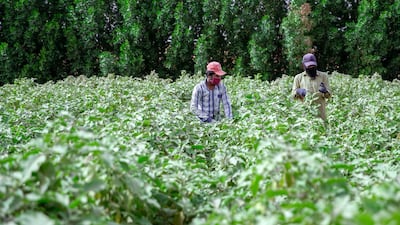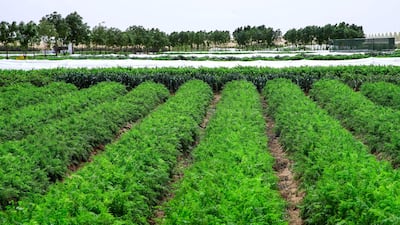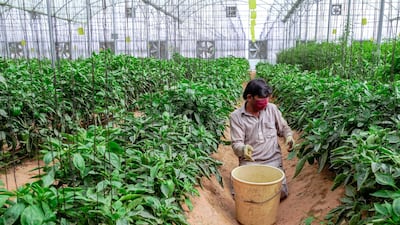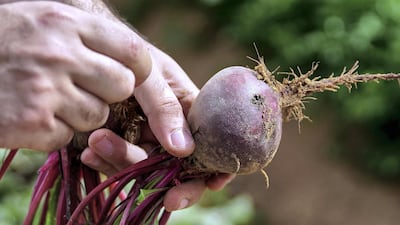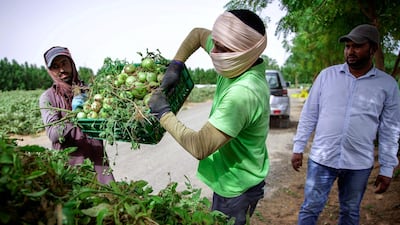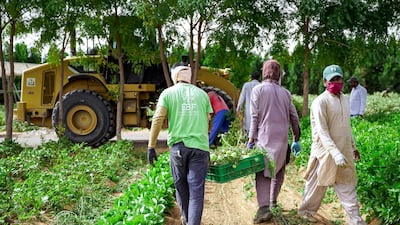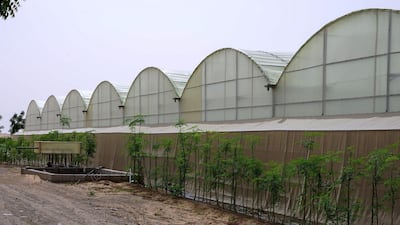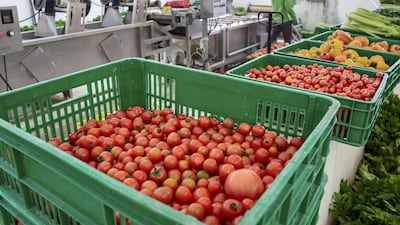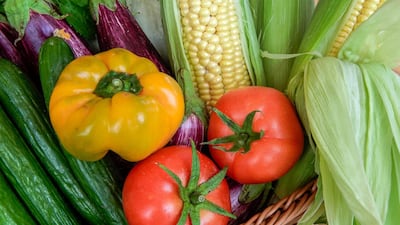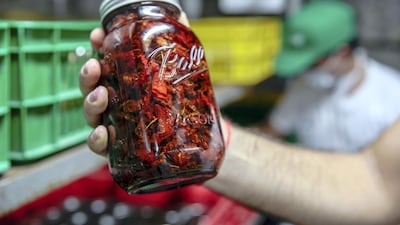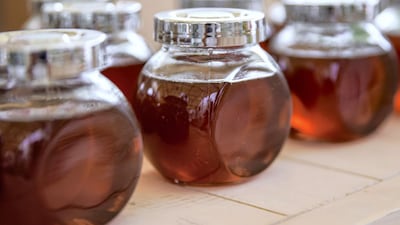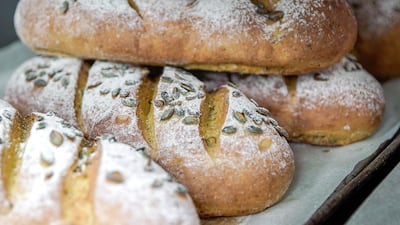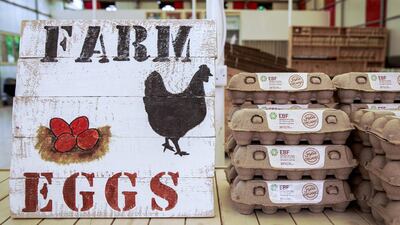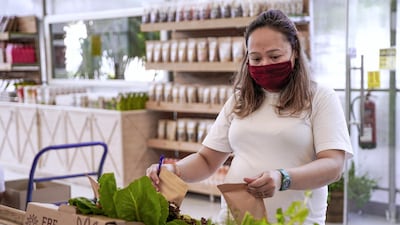Farmers in the UAE are bucking a global trend after finding a way to thrive as the widespread financial impact of the coronavirus outbreak continues to be felt by embattled traders.
While many companies across the Emirates and internationally are being forced to make rapid changes due to the pandemic, some in the country's agriculture sector are reaping the rewards of a spike in demand for local produce.
Emirates Bio Farm has closed its doors to the throng of visitors who regularly tour its sprawling 25-acre site, roughly 70km north of Al Ain city, shut its popular on-site vegetarian restaurant and cancelled corporate bookings.
But it is not all doom and gloom for the organic farm, which was set up four years ago and has expanded rapidly.
As residents adhering to stay-home orders turn to online orders and have more time to devote to cooking, demand for home deliveries, once only a small part of its income, have increased ten-fold.
And the long-term impact of the Covid-19 outbreak could bring lasting benefits for local farmers and food security in the UAE, Yazen Al Kodmani, operations manager at Emirates Bio Farm, believes.
“A lot of [fresh produce] used to come in from India, China, or even closer countries like Iran, Jordan or Lebanon,” he said. “All of that has been disrupted heavily. With the current situation and the high demand on local, a lot of farmers are seeing much less wastage.
“That’s great for the industry as a whole and hopefully the trend continues, where people are buying local so farmers can expand and local production can play a bigger part in food supply to the market.”
Rather than being temporarily laid off, the restaurant chefs have been put to work on developing new products and recipes and, significantly, wholesale orders from shops and supermarkets have also soared, as international supply chains are thrown into turmoil due to restrictions on air travel.

While the current harvesting season in the UAE is approaching an end, Mr Al Kodmani said he hoped that consumers who have turned to local produce, perhaps for the first time, amid the current outbreak would continue to support UAE farmers.
“A lot of people say 90 per cent of the food in the UAE is imported, we see that statistic in a lot of headlines,” he said. “The underlying assumption is that it’s because it isn’t produced here, but that is not the full story. The big picture is that even if you produce more tomatoes, or more cucumber, or you are self-sufficient in the season, the shelf-space given to local is still going to stay the same.
“When the market is oversupplied with tomatoes or cucumbers grown locally it’s being dumped. Obviously there is an arid climate here and the supply isn’t as much, but what I’m saying is there are a lot of products we can be more self sufficient in. But as long as the consumer is demanding other products the market is going to continue to import.
“The current season, unfortunately is coming to an end. But now that people have tried buying from us and others locally, I think they are going to change their habits for the better because they realise the importance of food security, of supporting the local businesses and realise eating fresh tastes better.”
Over the past month, Emirates Bio Farm has sold more produce than ever before, both to wholesalers and individual consumers. The business would typically receive between five and 15 orders per day for home deliveries, but recently, that has grown to between 50 and 80.
All of its 130-strong staff have been kept on, with some working overtime to keep up with demand. Three large refrigerated hangars, usually full of produce during the harvest season, are currently empty.
Not all farmers have welcomed the outbreak. Those that relied on supplying products to hotels and restaurants, for example, have had to rapidly change their businesses with the hospitality sector all but shut down.
However, overall, UAE farmers have “never been so busy,” said Atul Chopra, founder and managing director of Fresh on Table, a company that works to bring local producers and buyers together.
He said he also believed the coronavirus outbreak would lead to a lasting change in consumer purchasing habits, with customers turning away from imports. According to Mr Chopra, demand for local fish, as well as fruit and vegetables, has risen dramatically over recent weeks.

“People have previously been more keen on what’s coming in from Italy or France,’” he said. “The suppliers or supermarkets will be keen to push what they make the maximum margin in, because that’s what trade is all about.
“But people are discovering there’s a huge variety of fresh, local produce, so why won’t they go for it? A paradigm shift has happened across a lot of chefs in the UAE, and I think the same will happen with consumers."
Kibsons International, the online fruit and vegetable delivery company, said availability of products flown in by air had been severely disrupted by the pandemic. If they do manage to get deliveries, the cost of freight is very high, affecting prices, although arrivals by sea have continued.
Grapes, strawberries, watermelons and sweet potatoes, usually flown in from Australia or New Zealand, had been some of the products most affected.
“The current situation we find ourselves in is unprecedented and constantly changing,” Daniel Cabral, procurement manager at the company, said. “We are facing logistical challenges globally from farmers, producers, packhouses and transporters to ports and airports but everyone is working together to overcome these.
“I think it is always important, and perhaps highlighted with the coronavirus, to have alternative sources of products.”
